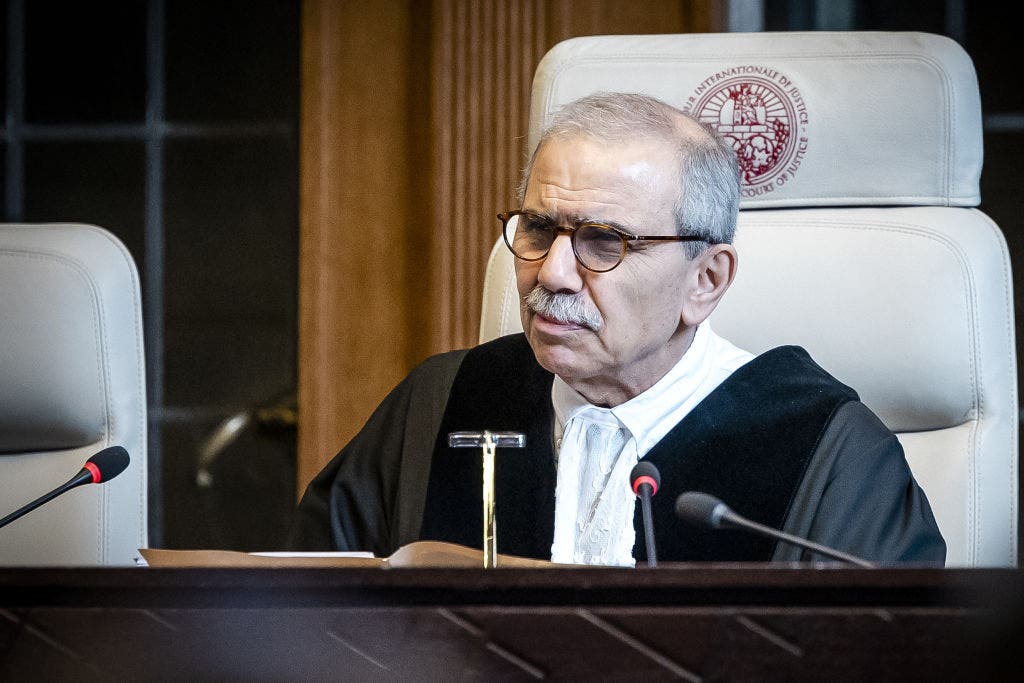The International Court of Justice (ICJ) is under fire for ordering Israel to stop its military offensive in Rafah to target Hamas, with critics pointing to the anti-Israel bias of presiding judge Nawaf Salam from Lebanon. Salam’s history of political activism against Israel has raised concerns about his objectivity in the case. The ICJ’s reliance on information from the United Nations, which has a track record of not condemning Hamas terrorists, has also been questioned. The involvement of a judge with a clear anti-Israel stance has further fueled accusations of bias within the ICJ.
Orde Kittrie, a senior fellow at the Foundation for Defense of Democracies, has argued that Salam’s political background in Lebanon violates the ICJ’s rules on conflicts of interest. Salam’s past statements criticizing Israel and advocating for Palestine’s full membership in the UN have raised doubts about his impartiality in the case. His ties to Lebanon, a country with connections to terrorist organizations like Hezbollah, have also raised concerns about the fairness of the ICJ’s ruling against Israel’s military campaign in Rafah. The ICJ’s decision has faced pushback from some judges and legal experts who argue that the court’s order does not require a unilateral ceasefire in Rafah.
Israeli government spokesperson Avi Hyman has made it clear that Israel will continue its military campaign in Rafah to eliminate Hamas battalions, despite the ICJ’s order. The Israeli government has vowed to protect its citizens and eradicate the genocidal terrorist regime of Hamas along its southern border. The terrorist group itself has welcomed the ICJ’s ruling, referring to Israel as the ‘Zionist enemy’ they intend to destroy. This response underscores the challenges of receiving support from an institution that has been criticized for anti-Israel bias and political motivations.
The ICJ’s order to halt Israel’s military operation in Rafah has been met with criticism and rejection by some judges and legal experts. The interpretation of the Genocide Convention and its obligation to prevent physical destruction in whole or in part has been a point of contention in the ruling. Some have argued that Israel should only stop its military offensive if it poses a threat of genocide, allowing the country to pursue its legitimate military objectives. The dissenting opinions have highlighted the complexity of the situation in Rafah and the need to balance Israel’s security concerns with international legal obligations.
The ICJ’s decision has reignited debates about the court’s impartiality and its role in addressing conflicts involving Israel and Palestine. Critics have raised concerns about the political influences and biases of judges like Salam, which may impact the objectivity of their rulings. The legal complexities of the case in Rafah, including the presence of terrorist organizations like Hamas and Hezbollah, have further complicated the ICJ’s involvement. The ongoing military campaign in Rafah and the hostages being held by Hamas underscore the challenges of addressing security threats while navigating international legal frameworks.
Overall, the ICJ’s order against Israel’s military offensive in Rafah has sparked controversy and raised questions about the court’s fairness and credibility. The involvement of judges with political affiliations and the interpretation of international legal conventions have been key points of contention in the case. The responses from both Israeli government officials and terrorist groups like Hamas highlight the complex dynamics at play in the conflict between Israel and Palestine. Moving forward, it remains to be seen how the ICJ will address these criticisms and concerns in its handling of conflicts in the Middle East.













